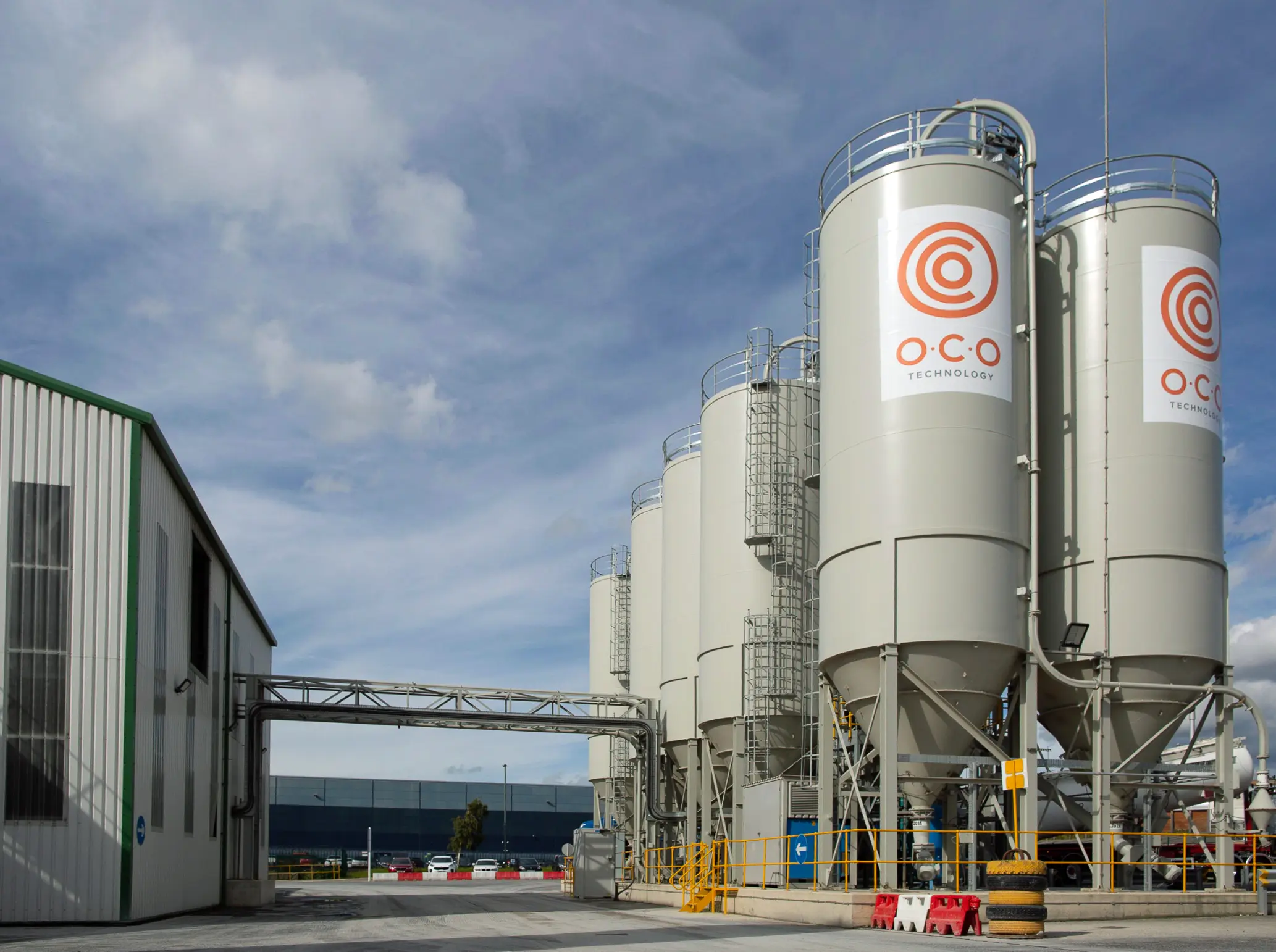The latest Building Materials report by respected equities research business BNP Paribas Exane, has named O.C.O Technology as a leader in the world concrete tech market.
The introduction to the January 2022 report begins: “Imagine if you could take carbon, transform it into rocks and store it permanently in building materials. You can. Welcome to concrete tech, an innovation that could flip the (concrete production) value chain on its head by 2030.”
BNP Paribas Exane explores the science behind the latest low carbon technologies, charting the path to industrial scale commercial deployment and in their words – “sorting the disruptors from disrupted”.

O.C.O Technology is identified as the most mature of the ten global concrete tech companies examined, underlined by the fact that it already controls 45% of the UK Air Pollution Control Residue (APCr) market and has treated over a million tonnes of this waste since inception. O.C.O has three UK facilities that can process 170,000 tonnes per year, with active expansion plans to increase processing capacity to 400,000 tonnes by 2024.
The BNP Paribas Exane report lists a number of factors that make O.C.O a commercially strong business. These include:
- A wide range of potential feedstock materials, established supply chains and strong relationships with both waste producers and building material manufacturers.
- The aggregate product is compliant with building regulations and potentially suitable for mass market use, for example in ready mixed concrete.
- The business also exhibits strong environmental credentials – implementing the circular economy, minimising waste, avoiding quarrying of virgin aggregate – as well as the crucial carbon capture component and production of the world’s first carbon negative aggregate.
BNP Paribas Exane believes that concrete tech can play a big role in fighting climate change as well as disrupting the established dynamics of the concrete industry. It has the potential to transform readymix into a green growth product; turn CO2 from a cost into a new revenue stream in cement; and disrupt the aggregates industry. They recognise the technology faces constraints, but the long-term implications for the entire industry are “profound”.
Concrete tech could theoretically cut the industry’s embodied carbon footprint by up to three billion tonnes of CO2 a year. Most of the carbon saving comes from CO2 stored in materials, particularly aggregates. In the report, BNP Paribas Exane calculates that using O.C.O aggregate to replace virgin aggregate would produce a carbon negative concrete – transforming the carbon footprint from a typical value of +385kg CO2 per cubic metre to -125kg CO2.
O.C.O’s Accelerated Carbonation Technology (ACT) process uses carbon dioxide gas as a resource to treat and valorise a wide range of wastes, including Air Pollution Control residues (APCr) from the Energy from Waste sector, turning it into carbon negative aggregate – also known as manufactured limestone (M-LS).
Stephen Roscoe, Technical Director at O.C.O Technology, said: “This report, by an independent world-leading research company, is a major endorsement of both O.C.O’s technology and the brand itself. The fact that the report talks about ‘profound’ implications for concrete production is a huge marker for the sector to sit up and take notice of the changes that are coming. We believe we can be – and indeed already are – at the forefront of this new technology and look forward to seeing major change on the building materials horizon.”
BNP Paribas Exane is not the only organisation to have noticed innovators such as O.C.O. They recognise there is a growing number of influential investors, including Mitsubishi Corporation, with whom O.C.O is already collaborating on projects around the world. The potential scale for concrete tech is enormous, with opportunities for the capture of significant quantities of carbon. O.C.O is pleased to have collaborated with BNP Paribas Exane and welcomes the findings of the report.
BNP Paribas Exane is a research company that is operationally independent of BNP Paribas. The report is solely for the private information of recipients.
